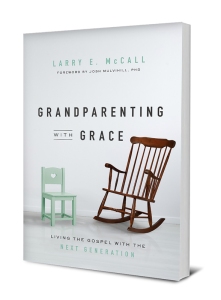Do I “…see strangers as neighbors and neighbors as family of God“?
Do I “…recoil at reducing a person to a category or a label“?
Do I “…see God’s image reflected in the eyes of every human being on earth“?
Do I know that I am “…like meth addicts and sex-trade workers…,” …taking my “…own sin seriously – including the sin of selfishness and pride“?
Once I’m done asking myself these jack-hammer questions, I can move on to the second  paragraph in the preface to Rosaria Butterfield’s most recent book The Gospel Comes with a a House Key: Practicing Radically Ordinary Hospitality in Our Post-Christian World. Whew. But for a person that’s being honest with their heart’s default mode and their daily practices, that’s about the pace of the book from launch to landing.
paragraph in the preface to Rosaria Butterfield’s most recent book The Gospel Comes with a a House Key: Practicing Radically Ordinary Hospitality in Our Post-Christian World. Whew. But for a person that’s being honest with their heart’s default mode and their daily practices, that’s about the pace of the book from launch to landing.
In a sense, Dr. Butterfield’s book is a little like Aslan, good but not safe. But that’s kind of her point. If a life motivated by the good news of Jesus’ death and resurrection is safe and comfortable, then it is a life unfamiliar, in some very practical ways, with the God who entered the un-safe-ness of life under the sun in order to love and rescue the unwashed and the unworthy. So in her very narratival fashion, Dr. Butterfield walks her readers along the smooth and jagged edges of what it looks like to regularly open one’s home to neighbors, dogs (hers and the neighbors’), strangers, church members, grad students, at least one black snake, and a seemingly constant stream of children (the source of the aforementioned reptile). She draws the reader along with story after story of how regularly having people in the home opens up an expectation that no topic is off-limits. As she says, “We were – as we almost always are around here – a politically mixed group. Unbelieving neighbors and church members all together (p.120).” But this is all what we might expect if the people seated around our dinner tables reflected our neighborhood as often as it it did our hand-picked group of friends. As she says a little earlier, “The gospel creates community that welcomes others in… It isn’t always easy. It begins with recognizing people as your kin (p.86).”
Dr. Butterfield’s book excels in amazing ways at setting a vision for radically, ordinary hospitality and its transformative power for our post-Christian culture. Her closing list of “Imagine a world where…” is pure gold and worth typing up and putting on the refrigerator or bathroom mirror. While she does get down to the practical and the nitty-gritty of what it looks like to practice radically ordinary hospitality (see her “The Nuts and Bolts and Beans and Rice” in the concluding chapter), this reviewer’s fear is that this vision of hospitality is so far from where most people live right now that folks won’t know where to start and, in turn, fail to do so. We all know that feeling well. You get up on Saturday morning determined to clean out the cluttered garage only to raise the door, see the mountain of undifferentiated stuff that has to be tackled, and then close the door in favor doing some other task your familiar with. So if I had to recommend a starting place, I would simply offer Dr. Butterfield’s wise words from her conclusion:
In married households it is vital that both husband and wife share a calling for hospitality and work together to establish a budget for time and food and people. Wives, let your husbands lead. Husbands, be sensitive to your wife’s energy level… the pace is set by the one who feels the most frail… [Hospitality] should make us stronger in Christ. If hospitality becomes a point of contention, something is wrong. Stop and reevaluate. Pray. Map out goals and values. Be a team.
Of course the ministry of hospitality isn’t simply practiced by married couples (something Dr. Butterfield says as well), nor will it look the same for all households. For instance, I have a single friend whose hospitality ministry looks like foster-parenting two children taken from a home due to the current opiate epidemic. I have another set of friends who are hosting an international exchange student; another set of friends who gave a lady a home during a period of time when her marriage was crumbling; and another set of friends who are slowly working their way through the church membership rolls and inviting a different family over each Lord’s Day. At the end of the day, Dr. Butterfield’s vision for practicing radically ordinary hospitality is as bold and bracing as it is alluring and refreshing. If Christ’s redeemed people began practicing and coordinating this kind of hospitality, then walls would crumble as our doors opened, and we would be able to “…put the hand of the hurting into the hand of the Savior (p.207).”



 ce we give people charges when they enter into a new office in life, I thought it’d be appropriate to give him a charge at this boundary between boyhood and the “office” of manhood. I hope this manuscript of my charge to my son may challenge you young Christian men out there as you begin to carve your path forward, a path of loyalty to the King of kings.
ce we give people charges when they enter into a new office in life, I thought it’d be appropriate to give him a charge at this boundary between boyhood and the “office” of manhood. I hope this manuscript of my charge to my son may challenge you young Christian men out there as you begin to carve your path forward, a path of loyalty to the King of kings.

 cover (a practice which is not altogether bankrupt as it turns out), I was pleasantly pleased with Patrick’s very readable book. In my opinion, the highlight of the book was chapter 8, “Say, ‘I Love You, Man’: The Connected Man”. I know this sounds like the biggest fruitcake chapter of them all, but Patrick absolutely nails the modern man’s propensity to be disconnected, overly-independent, uninvolved, and anonymous when it comes to our male friendships and the heavier matters we all deal with in life. He says on page 112, “Sometimes people drift away, but a lot of times a crisis or disagreement drives them away… It takes perseverance to face hard conversations, poverty and wealth, good times and bad… Perseverance means fighting through each others failures — the hurts, the brokenness — and enduring the wounds in order to cultivate a relationship.” In my experience as a pastor working with other men, maintaining a certain relational independence and anonymity toward male friends is an extremely dangerous situation, allowing our lack of perspective as individuals to grow in unchecked and unhealthy directions. But a man with true friends — not fans or drinking buddies but other men who won’t let us go off the rails without slapping us with the truth of where we are headed — is a rich man indeed.
cover (a practice which is not altogether bankrupt as it turns out), I was pleasantly pleased with Patrick’s very readable book. In my opinion, the highlight of the book was chapter 8, “Say, ‘I Love You, Man’: The Connected Man”. I know this sounds like the biggest fruitcake chapter of them all, but Patrick absolutely nails the modern man’s propensity to be disconnected, overly-independent, uninvolved, and anonymous when it comes to our male friendships and the heavier matters we all deal with in life. He says on page 112, “Sometimes people drift away, but a lot of times a crisis or disagreement drives them away… It takes perseverance to face hard conversations, poverty and wealth, good times and bad… Perseverance means fighting through each others failures — the hurts, the brokenness — and enduring the wounds in order to cultivate a relationship.” In my experience as a pastor working with other men, maintaining a certain relational independence and anonymity toward male friends is an extremely dangerous situation, allowing our lack of perspective as individuals to grow in unchecked and unhealthy directions. But a man with true friends — not fans or drinking buddies but other men who won’t let us go off the rails without slapping us with the truth of where we are headed — is a rich man indeed. the parents who have a child in the youth group. So… as I look to learning how to shepherd the small flock living under my roof, I’ve come across this solid parenting resource. Alex Chediak has written a book that has some fantastic nuggets of wisdom that are seated in some very engaging “conversations” revolving around the topics of character, faith, relationships, finances, academics, and the college decision. For instance, his discussion of “over-parenting” versus “under-parenting” and the resident dangers that each contains is all very good, but he really hits the nail on the head in the portions that draw out the deleterious effects of parents who allow their young adults to have an unadmonished high self-esteem all while being underachievers. Chediak says, “Confidence and self-esteem grow in proportion to the expectations of others and actual accomplishments (p.15).”
the parents who have a child in the youth group. So… as I look to learning how to shepherd the small flock living under my roof, I’ve come across this solid parenting resource. Alex Chediak has written a book that has some fantastic nuggets of wisdom that are seated in some very engaging “conversations” revolving around the topics of character, faith, relationships, finances, academics, and the college decision. For instance, his discussion of “over-parenting” versus “under-parenting” and the resident dangers that each contains is all very good, but he really hits the nail on the head in the portions that draw out the deleterious effects of parents who allow their young adults to have an unadmonished high self-esteem all while being underachievers. Chediak says, “Confidence and self-esteem grow in proportion to the expectations of others and actual accomplishments (p.15).”